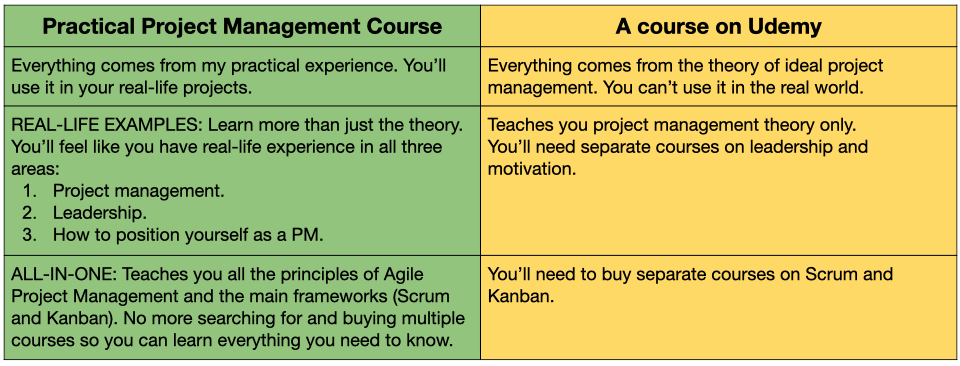
What are the types of critical infrastructure jobs? These are jobs that fall under the umbrella of the water and energy industries. These jobs are essential for national security and economic stability. These jobs may require documentation in writing. Here are some examples. These jobs may require special training.
Examples of critical infrastructure workers
They play a critical role in protecting communities. These individuals are vital to the safety and security of our communities, as well as for our economic security. We can increase community resilience and ensure continuity of vital functions by identifying and protecting these workers. These are some examples of critical infrastructure workers, and what their roles are. They are indispensable to society as they provide essential services for the community.
CISA, the Cybersecurity and Infrastructure Security Agency produced a list containing ECIW. This list is the most comprehensive national definition. However, CISA still hasn't assigned a classification to each worker. It is also aware that some workers may be skilled in more than one area. You can classify critical infrastructure workers in either the construction or information technology fields.

Many industries contribute to the provision of critical infrastructure and provide essential jobs. These workers include transport and logistics workers who ship, distribute, and IT workers as well as emergency responders and media workers. The building trades and legal services workers are two other essential sectors.
The energy sector is a great place to work
The growth of work in the energy sector is faster than that of other areas. According to the 2020 U.S. Energy and Employment Report released by National Association of State Energy Officials in 2019, the energy sector employed close to seven million Americans. The growth was driven by fuel production, electric power generation, motor vehicles, and transmission, distribution, and storage, which now account for nearly three percent of the nation's total employment.
The United States' energy infrastructure is essential for the future of the 21st century economic system. Without a secure and reliable supply of energy, our economy cannot operate. Presidential Policy Directive 21 identifies the Energy Sector among the most vital infrastructure sectors. About 80 percent is private and provides electricity for households and businesses.
Water sector work
While the water industry is a key sector of the economy it is also facing many challenges. Water system is getting older and many workers will be retiring in the coming years. Many water workers are skilled in technical maintenance, but they also have the ability to perform administrative, financial, or management tasks. Water workers only make up one to two percent in the overall workforce but they are essential to the economy as well as society.

Water companies must be prepared to deal with the disruptions that could result from cyberattacks. Cyberattacks are possible because the water sector has become increasingly automated. One hacker managed to almost increase the concentrations in drinking water of a caustic substance by breaching the monitoring system. The water utility was required to follow regulations. Unfortunately, very few utilities are investing in cybersecurity as they implement new technology.
FAQ
What is TQM exactly?
The industrial revolution saw the realization that prices alone were not sufficient to sustain manufacturing companies. This led to the birth of quality. They had to improve efficiency and quality if they were to remain competitive.
Management realized the need to improve and created Total Quality Management, which focused on improving all aspects within an organization's performance. It included continuous improvement processes, employee involvement, and customer satisfaction.
It can sometimes seem difficult to make business decisions.
Businesses are complex systems, and they have many moving parts. They require people to manage multiple priorities and deal with uncertainty and complexity.
Understanding the impact of these factors on the system is crucial to making sound decisions.
It is important to consider the functions and reasons for each part of the system. Next, consider how each piece interacts with the others.
You need to ask yourself if your previous actions have led you to make unfounded assumptions. You might consider revisiting them if they are not.
Try asking for help from another person if you're still stuck. They might see things differently than you and may have some insights that could help find a solution.
What are the most common errors made by managers?
Sometimes, managers make their job more difficult than it is.
They may not assign enough responsibilities to staff members and provide them with inadequate support.
In addition, many managers lack the communication skills required to motivate and lead their teams.
Managers set unrealistic expectations and make it difficult for their team.
Managers may prefer to solve every problem for themselves than to delegate responsibility.
What is the main difference between Six Sigma Six Sigma TQM and Six Sigma Six Sigma?
The main difference in these two quality management tools lies in the fact that six sigma is focused on eliminating defects and total quality management (TQM), emphasizes improving processes and reducing costs.
Six Sigma is a method for continuous improvement. This method emphasizes eliminating defects using statistical methods such p-charts, control charts, and Pareto analysis.
This method has the goal to reduce variation of product output. This is done by identifying root causes and rectifying them.
Total quality management refers to the monitoring and measurement of all aspects in an organization. Training employees is also part of total quality management.
It is often used as a strategy to increase productivity.
How does a manager motivate their employees?
Motivation is the desire to do well.
Engaging in something fun can be a great way to get motivated.
You can also get motivated by seeing your contribution to the success or the improvement of the organization.
For example, if your goal is to become a physician, you will probably find it more motivational to see patients rather than to read a lot of medicine books.
The inner motivation is another type.
You may feel strongly that you are responsible to help others.
You might even enjoy the work.
If you don’t feel motivated, find out why.
Then, consider ways you could improve your motivation.
Statistics
- The BLS says that financial services jobs like banking are expected to grow 4% by 2030, about as fast as the national average. (wgu.edu)
- Hire the top business lawyers and save up to 60% on legal fees (upcounsel.com)
- UpCounsel accepts only the top 5 percent of lawyers on its site. (upcounsel.com)
- The profession is expected to grow 7% by 2028, a bit faster than the national average. (wgu.edu)
- Your choice in Step 5 may very likely be the same or similar to the alternative you placed at the top of your list at the end of Step 4. (umassd.edu)
External Links
How To
What are the 5S for the workplace?
Your first step in making your workplace more efficient and productive is to organize everything. A neat desk, tidy space, and well-organized workspace are key to productivity. The five "S"'s (Sort. Shine. Clean. Separate. And Store) help to maximize space and ensure efficiency. In this session, we'll go through these steps one at a time and see how they can be implemented in any type of environment.
-
Sort. Clear away clutter and paper so that you don’t spend time looking for it. This means that you should put things where they are most useful. Keep it near the spot where you most often refer to it. Also, consider whether you really need it. If it isn't useful, get rid!
-
Shine. You should get rid of any items that could be harmful or cause injury to others. If you have lots of pens, it is a good idea to find a safe place to keep them. A pen holder is a great investment as you won't lose your pens.
-
Sweep. Keep surfaces clean to avoid dirt building up on furniture or other items. A dusting machine is a great investment to keep your surfaces clean. To keep your workstation neat, you can reserve a certain area for dusting or sweeping.
-
Separate. Separate your trash into multiple bins to save time when you have to dispose of it. Trash cans are usually placed strategically throughout the office so that you can easily throw out the garbage without searching for it. Make sure that you take advantage of this location by placing trash bags next to each bin so that you don't have to dig through piles of trash to find what you need.